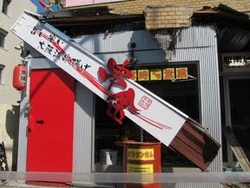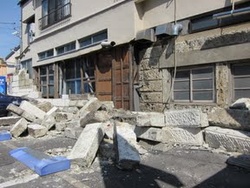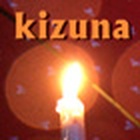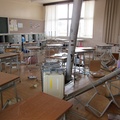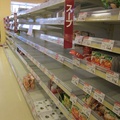Friday, March 11
On Friday, March 11, 2011, my life was turned upside down. A 9.0 earthquake struck the northeastern coast of Japan, followed by a massive tsunami that killed more than 8,100 people, left 12,000 missing and displaced 452,000 people. Since March 11th, there have been close to 1,000 aftershocks felt all over Japan, including over six quakes around Fukushima and the northern Ibaraki area.
There have been mounting fears about the Fukushima nuclear reactors and radiation as well as a shortage of fuel, food and water in many areas. I witnessed the long lines for fuel and empty shelves at the convenience and grocery stores. In my town of Takahagi, grocery stores were open for a short time and people were limited to buying ten items at a time. The power in Takahagi was restored after a few days following the quake, but it took about ten days for water to return.
Yesterday marked the one month anniversary of the initial earthquake and the effects are still being felt. Yesterday, a 7.0 aftershock struck the Fukushima area and tremors continued throughout the night. Everyone is trying their best to return to life as normal, but the reality is that things are not normal. I wake up every day not knowing what will happen and pray that God will keep me safe.
Over the past month, I have received so many emails, facebook messages and phone calls from friends and family and feel extremely blessed. I know many people have been praying for me, my friends, students, teachers and people of Japan. More prayers are still needed as the Japanese work to rebuild their lives and recover from the devastation.
The week of the earthquake, I was traveling in the Tokyo area with two friends that were visiting me from Illinois. I took a week of vacation and on Friday, the 11th, my friends and I were in Mito city in Ibaraki Prefecture. I wanted to take them to a well known park in Mito to see the ume (plum) blossoms. We planned to go to dinner and karaoke later with some of my friends from church. We had just eaten sushi for lunch and were at the grocery store right before the earthquake hit. One of my friends is a teacher and wanted to buy some candy to bring back for her students. As we waited in the checkout line to pay, the ground started to shake. I heard the woman in front of me say "jishin", which means "earthquake" in Japanese. Japanese people are used to earthquakes, so everyone waited for the shaking to stop, but the shaking continued and increased. It became clear that this was not going to be a regular earthquake. Soon food products began falling off the shelves and the light above us started to sway. People began panicking and running out of the store. My friends put down their food and we ran out of the store to the parking lot. I felt quite scared and was glad to have my friends with me. It almost felt like I was going to be knocked off my feet, but I remained standing. After several minutes the shaking stopped. The electricity in the store went out and water started gushing into the parking lot from a dry cleaning store nearby. Two store clerks were carrying young children who were separated from their mother. Many others were crying. My friends asked me if this was normal and I said, "No, this is the biggest and longest earthquake I have ever experienced."
We pulled ourselves together and realized we couldn't go back into the store. My friends and I walked over to the bus stop because we had taken a bus from the train station. While we waited at the bus stop, more aftershocks came and government employees began evacuating from the building across the street. We moved away from the bus stop for fear the overhead covering would fall on us. We joined two government employees and a young Japanese woman in the field behind the bus stop. We discovered that the Japanese woman spoke excellent English and had recently returned to Japan from living in Boston for awhile. She was in the middle of a job interview when the earthquake hit. My friends and I were so thankful to have someone who spoke both English and Japanese. She was a tremendous help and gave us updates on the situation as best she could. We ended up waiting in this area for about 2 1/2 hours. By now quite a few buses had gathered in the parking lot, but the bus drivers told us they could not take anyone back to the station because the roads were badly damaged and the traffic signals were out. It was pretty cold, so one bus driver allowed several of us to sit on the bus to stay warm.
Around 5:30pm the bus drivers told us we had to walk back to the station since they could not take us back by bus. No one in the group knew the way back to the station, but thankfully I had grabbed a map of Mito from the hotel earlier and the bus driver was able to use the map to explain directions to the Japanese people in the group. We started walking back to the train station with three other Japanese people, including the Japanese woman we had met earlier. It was beginning to get dark and the only light we saw was from the headlights of cars since there was no power in the city. We saw a lot of the destruction as we walked back to the station including damaged storefronts, sidewalks, and topped bricks and cement pillars. Along the way a bakery shop owner was bringing out boxes of sweets from his store because he had no way of keeping them cold without power. He saw us and handed each of us a big box to take with us. We thanked him and continued on our way. We walked for 1 1/2 hours and arrived back at our hotel near the station around 7pm.
Our new friend A. San lived near the station and told me to call her if we needed her help. We thanked her for her kindness and parted ways. A. San's friend that had also been walking with us could not return home because the trains were not working. She spoke some English and went with us to our hotel to see if she could get a room for the night. Our hotel was pitched black when we arrived, but the hotel staff allowed us inside. Flashlights were being used for light and we wrote down our name, address and phone number on cards. We were thankful that A. San's friend and some of the hotel staff spoke English. They explained that all the guests would be staying on the first floor and sleeping in a big room in the lobby. There were chairs set up and other guests in the room already. They brought us comforters and told us to use the bathrooms in the lobby. The hotel staff gave everyone a small cup of water and some snacks to eat. My friends and I gave our boxes of dessert to the hotel staff to distribute. They set up a small table in the middle of the room with snacks and the desserts for people to take freely.
A. San's friend was allowed to stay and went out to the convenience store for food. She returned after a long time with some water bottles and yogurt for my friends and me and also for another group of Australians sitting behind us. She told us that her husband living in Tochigi prefecture (west of Ibaraki) would be coming to pick her up that night. We thanked her for her kindness and she left later that night. I received texts on my cell phone from my parents asking if my friends and I were safe. I texted back and told them we were all safe and had them call my friends' parents to let them know. After the earthquake I couldn't get through to any of my friends and prayed they were all ok.
Later that night the hotel staff brought comforters and we tried our best to make ourselves a bed on the floor. No one slept well and we continued to feel aftershocks throughout the night. We were thankful to be alive, have shelter overhead, a warm place to sleep and some food and water.
*This article was originally published in Voices of Chicago, online journal of the Chicago Japanese American Historical Society on April 29, 2011.
© 2011 Kristin Hanaoka


